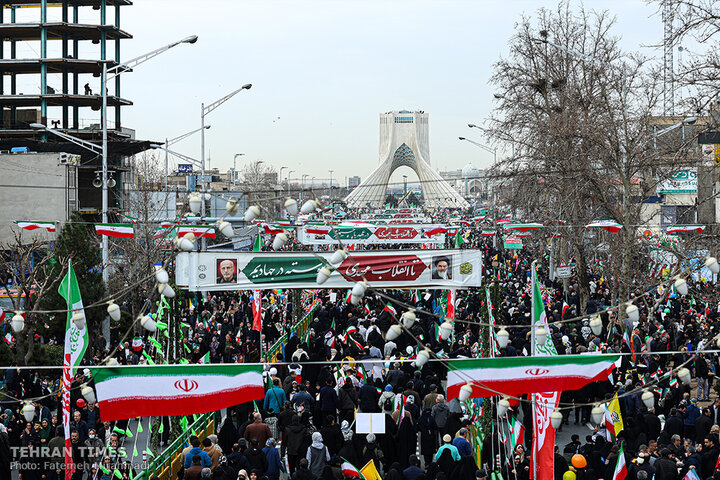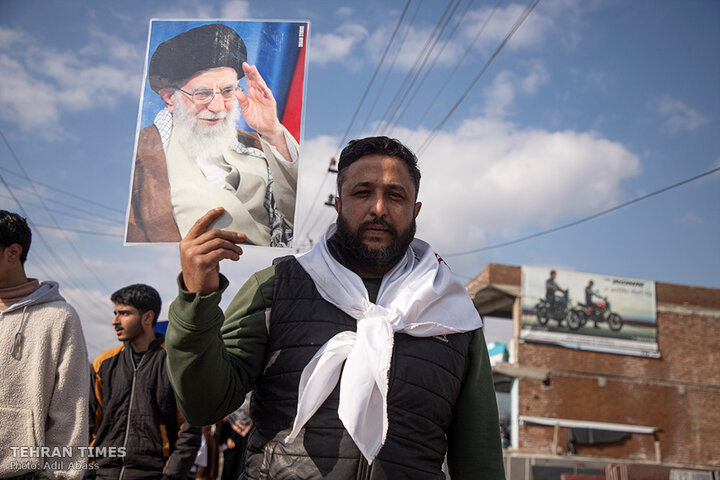-
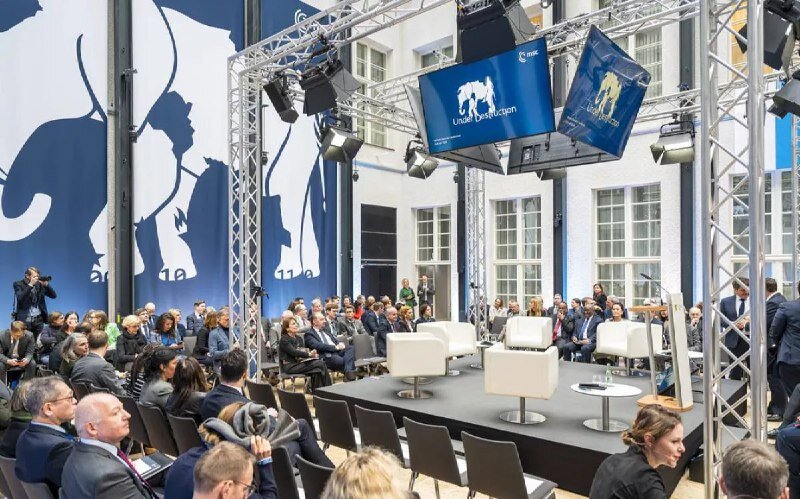 2026-02-15 21:55
2026-02-15 21:55
By Soheila Zarfam
'Munich Circus': Under destruction
Sidelined in Ukraine and ignored in West Asia, Europe sacrifices its diplomatic standing to appease Israel
TEHRAN – What the Munich Security Conference (MSC) has become is nothing short of a “circus”. That's the assessment from Iranian Foreign Minister Abbas Araghchi regarding the annual event. He shared this blunt view on his X account, likely after witnessing the son of a deposed king—who fled the country with hundreds of millions in Iranian wealth almost five decades ago—being invited to the event to claim popular desire for his monarchical restoration.
-

By staff writer
Greenland’s icequake: The rift that rocks U.S.–Europe relations
TEHRAN – Tensions over Greenland were already high in the weeks before the 2026 Munich Security Conference. President Donald Trump’s repeated statements about acquiring the Arctic island had triggered strong reactions in Denmark and Greenland, raising concerns about sovereignty and trust within the alliance.
-
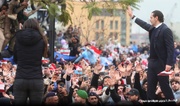
By Sondoss Al Asaad
Saad Hariri and the future of his Future Movement
BEIRUT — On the 21st anniversary of the assassination of former Lebanese PM Rafic Hariri, thousands gathered in Beirut’s Martyrs’ Square in a scene that blended remembrance with political anticipation.
-
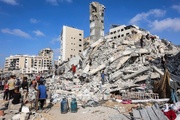
By Wesam Bahrani
Gaza truce fails Palestinian hopes and Israeli goals
TEHRAN – The situation in the Gaza Strip remains volatile, failing to meet the hopes of its residents or the strategic objectives of the occupying Israeli regime.
-
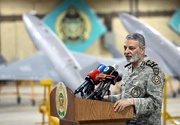
Any war would be a ‘cautionary battle’ for Trump, Iran’s military chief warns
TEHRAN – Iran’s military leadership is showing the same resolve it showed in January, when it compelled U.S. President Donald Trump to abandon his plans for military strikes by making it clear that any aggression would result in a full-blown regional war.
-
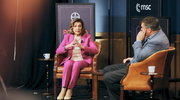
‘Pelosi’s call for harsher sanctions on Iranians amounts to crime against humanity’
TEHRAN - Iran’s Foreign Ministry spokesman says intensifying economic pressure on the Iranian people is tantamount to a “crime against humanity”.
Politics
-
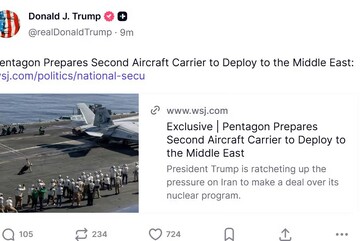
Big threats and empty hands
Renewed moves by the United States and Israel against Iran have once again inflamed the regional media landscape. From the repositioning of military equipment to the escalation of threatening rhetoric, everything points to mounting psychological pressure. But behind the noise, what reality lies hidden, and which way has the balance of power tilted?
-
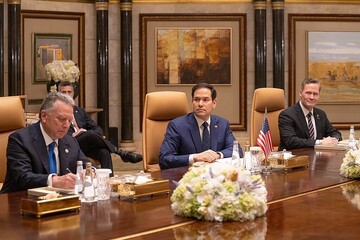
Constraint, recognition and the endgame of coercion in Iran–US negotiations
MADRID – Oedipus, the Greek tragedy written by Sophocles, does not fall because he is weak. He falls because he cannot accept that some truths exist only at the cost of the order that sustains him. He demands transparency where the structure requires discretion. He moves through every warning, convinced that inquiry and will can bend fate. In the end, what he uncovers is not liberation but the shape of inevitability. The ground beneath him was set long before he began to question it.
-
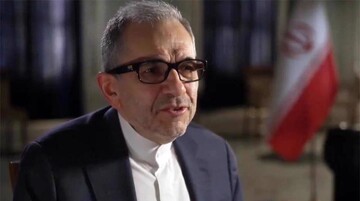
Iranian negotiator says US can have a nuclear deal with Tehran if it lifts sanctions
TEHRAN - Iran is ready to consider compromises to reach a nuclear deal with the U.S. if the Americans are willing to discuss lifting sanctions, a senior Iranian diplomat has told the BBC.
Sports
-
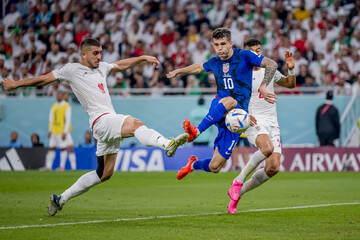
Iran’s potential March friendly opponents: Costa Rica and Nigeria
TEHRAN – The Football Federation of Iran is expected to officially announce Team Melli’s friendly match schedule as preparations intensify for the 2026 FIFA World Cup.
-
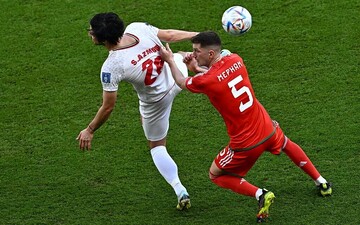
Iran football preparations’ hurdles ahead of 2026 World Cup
TEHRAN - As Iran national football team gear up for the 2026 FIFA World Cup, the road to preparation has become unexpectedly challenging. After qualifying for the tournament — securing their place with a key result in the Asian qualifiers — expectations were high for a robust series of friendly matches ahead of the summer finals in the United States, Canada, and Mexico.
-
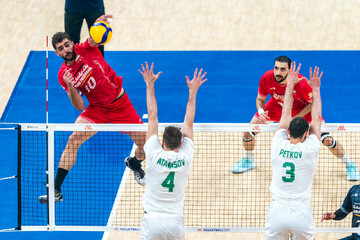
Iran volleyball team invited to Russia
TEHRAN – The Russian Volleyball Federation has officially invited the Iran men’s national team for friendly matches.
Culture
-
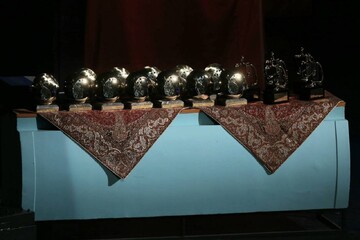
41st Fajr International Music Festival concludes with tribute to veterans, unveiling of AI singer
TEHRAN- The closing ceremony of the 41st Fajr International Music Festival was held at Vahdat Hall on Saturday evening, bringing the six-day event to an end with tributes to veteran artists and the presentation of the prestigious Barbad Awards.
-
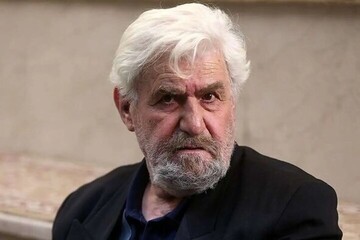
Veteran actor Enayatollah Bakhshi passes away at 80
TEHRAN- Veteran Iranian stage and screen actor Enayatollah Bakhshi passed away on Sunday after a period of illness. He was 80.
-
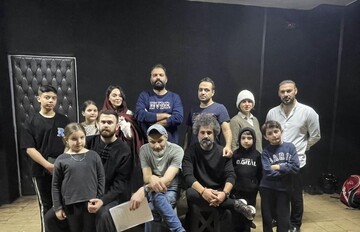
Simorgh Theater Hall to stage play by Martin McDonagh
TEHRAN – Simorgh Theater Hall in Tehran will stage the 2018 play “A Very Very Very Dark Matter” written by Martin McDonagh in March.
Economy
-
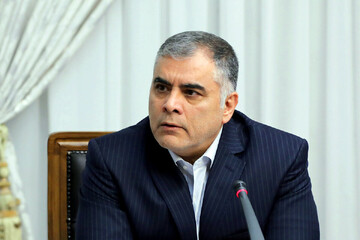
‘Iran–Russia Joint Economic Committee meeting marks turning point in bilateral co-op’
TEHRAN – Iran’s Oil Minister Mohsen Paknejad has described the 19th meeting of the Iran–Russia Joint Economic Committee as a pivotal opportunity to deepen strategic ties between Tehran and Moscow and open a new chapter in bilateral economic relations.
-

Iran’s date exports rise 25% in 2024, generating $213m
TEHRAN – Iran’s exports of fresh and dried dates increased by 25 percent in value in 2024, generating more than $213 million in foreign currency earnings, according to trade data.
-
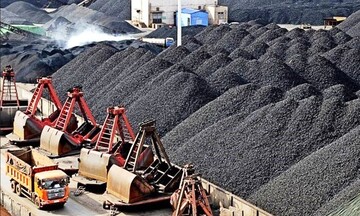
Iron ore concentrate output rises 9% in 9 months; lump ore up 44%
TEHRAN – Production of iron ore concentrate by Iran’s major mining companies rose nine percent in the first nine months of the current Iranian year (ending December 21, 2025), while lump iron ore output surged 44 percent, according to new data released by Iranian Mines and Mining Industries Development and Renovation Organization (IMIDRO).
Society
-
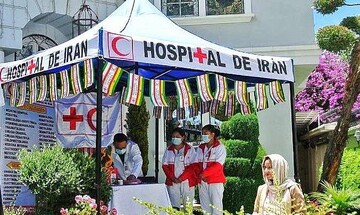
IRCS provides free health services in deprived areas abroad
TEHRAN – The Iranian Red Crescent Society (IRCS) medical centers abroad provided humanitarian assistance and health-based services free of charge in less privileged areas, on the occasion of the 47th anniversary of the Islamic Revolution, marked from February 1-11.
-

National week on natural resources and watershed management to be held
TEHRAN – The natural resources and watershed management week will be held from February 29 to March 4 with the theme “investment for sustainable development”.
-
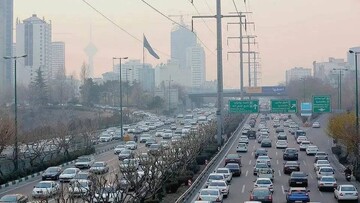
Intl. conference on air pollution management underway
TEHRAN – The first international conference on air pollution management is being held on February 15 and 16 in Tehran.
Tourism
-
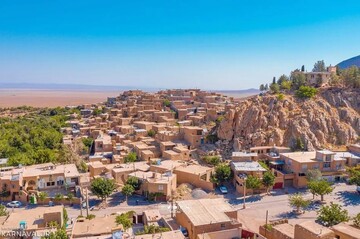
Desert village Qaleh Bala moves closer to possible UN label
TEHRAN – Cultural heritage authorities in Shahroud have finalized a dossier to nominate the village of Qaleh Bala in Semnan province for inscription by the UN Tourism, a local official said on Saturday.
-
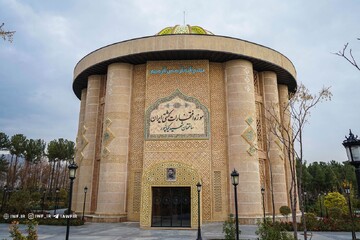
National wrestling hall of fame opens to public in Tehran
TEHRAN – Iran’s National wrestling hall of fame (aka national wrestling honors museum) opened to the public in Tehran on Saturday.
-
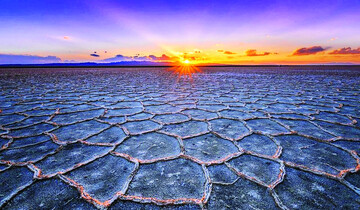
Tabas Salt Lake added to national natural heritage list
TEHRAN – The Tabas Salt Lake in South Khorasan province has currently been registered on Iran’s national natural heritage list following approval by the National Council for Registration of Natural Heritage, a provincial official said.
International
-
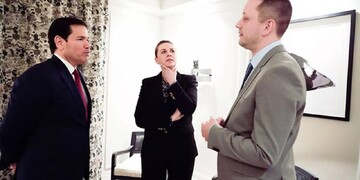
Greenland’s icequake: The rift that rocks U.S.–Europe relations
TEHRAN – Tensions over Greenland were already high in the weeks before the 2026 Munich Security Conference. President Donald Trump’s repeated statements about acquiring the Arctic island had triggered strong reactions in Denmark and Greenland, raising concerns about sovereignty and trust within the alliance.
-

Saad Hariri and the future of his Future Movement
BEIRUT — On the 21st anniversary of the assassination of former Lebanese PM Rafic Hariri, thousands gathered in Beirut’s Martyrs’ Square in a scene that blended remembrance with political anticipation.
-

Gaza truce fails Palestinian hopes and Israeli goals
TEHRAN – The situation in the Gaza Strip remains volatile, failing to meet the hopes of its residents or the strategic objectives of the occupying Israeli regime.
Most Viewed
-
Tehran reiterates missile red line as Israel pushes to sink nuclear talks
-
A surrendered Iran is a balloon in Trump’s dreams
-
Pezeshkian announces $2.5b allocation for transport corridor development
-
Iran sends Jaam-e-Jame 1 satellite into space
-
Iranian, Russian, and Chinese diplomats hold talks on Tehran’s nuclear program
-
Iran elected as vice-chair of UN Commission for Social Development
-
Iranian FM scorns Miriam Adelson for her unsubstantiated claims
-
The Epstein files: A glimpse into the rot beneath America’s ruling class
-
Putin says Iran-Russia strategic partnership should be strengthened
-
The fateful dilemma of Iran’s economy
-
Netanyahu in Washington: The invisible architecture of US-Iran policy
-
Iran targeted for blocking 'Greater Israel' scheme: Hezbollah
-
Yemen commemorates historic Feb. 11 victory against U.S. occupation
-
Nuclear chief hails Iran’s 'miraculous' progress despite severe sanctions
-
Munich Security Conference exposes a fracturing U.S.–Europe alliance





